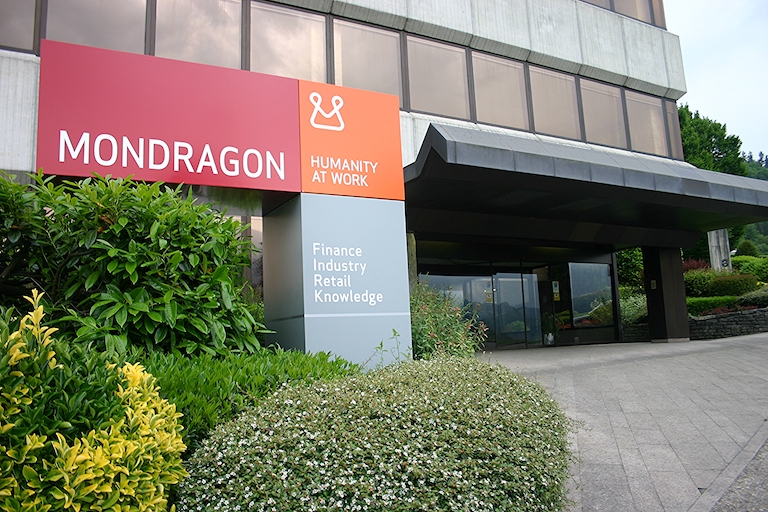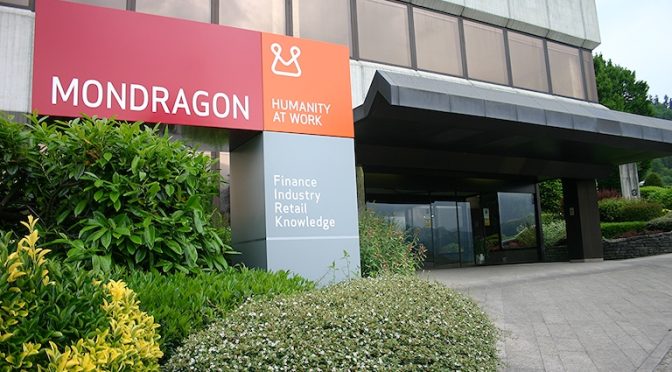I have hesitated to do a Fact on the Mondragón Corporation, the world-renowned cooperative in the heart of Gipuzkoa, simply because I didn’t think I could do it justice. It’s just felt too big and important that, I admit, I was a bit intimidated. However, The New Yorker recently did a nice piece on what is probably the most famous cooperative in the world. I direct you there to get a true appreciation of what Mondragón is – the culture, the impact it has had on its employees and the region. Here, I’ll just give brief synopsis of the corporation – just the facts, if you will.

- Mondragón (Arrasate in Euskara) is a city in the middle of Gipuzkoa where about 22,000 people live. José María Arizmendiarrieta, a priest from Markina-Xemein in Bizkaia, arrived 1941. Seeing the lingering poverty in the aftermath of the Spanish Civil War, he established a technical college, training and educating students and selecting the most promising to pursue degrees in engineering.
- The first company of the cooperative, founded in 1955, was Talleres ULGOR, a name derived from the surnames of the five men who founded it: Usatorre, Larrañaga, Gorroñogoitia, Ormaechea, and Ortubay. Today, the company is known as today as Fagor Electrodomésticos.
- From there, the cooperative expanded greatly, filling needs of its members. In 1958, the Spanish government determined that the workers of the cooperative were not eligible to participate in the Spanish social security system. In response, Arizmendiarrieta created by a pension and a healthcare system, both as new coops. He also organized a bank to serve the members’ financial needs.
- The system works with the philosophy that each co-op is owned by the workers. All worker-owners vote to elect a governing council which then picks a managing director. (Note every worker is an owner, a reality that has grown with time.) Further, the largest salary can only be about six times as great as the lowest (it varies from coop to coop, but the largest difference is nine-to-one). This differential has increased over the original three-to-one ratio, as the Corporation tries to compete in a global economy.
- The Corporation has production plants in other countries, the first in Mexico. Today, they have more than 140 such plants operating in 37 different countries.
- Today, the Mondragón Corporation is the tenth largest company in Spain. It employs some 80,000 people in 95 individual cooperatives and 14 research and development centers. Its products are sold in more than 150 countries. They have activities across four broad categories: Finance, Industry, Retail, and Knowledge. In 1997, they founded the Mondragon Unibertsitatea which now has 5000 students in a wide range of fields including engineering, education, communications, business management, entrepreneurship and food science.
Primary sources: Mondragon Corporation, Wikipedia; Mondragon Corporation; How Mondragon Became the World’s Largest Co-Op, The New Yorker
Discover more from Buber's Basque Page
Subscribe to get the latest posts sent to your email.



Very impressive. It should be a model to follow everywhere on the World. With this model, every country would not only survive, but create a developing community where the sharing of benefits and an education system, will guarantee success in the future. Each place should look for it’s strengths and start building up a present and a very promising future.
Thank you for sharing this very important fact of the Basque reality.
Guillermo
I am surprised that the Basque name of the city was not mentioned. It is called Arrasate, and sometimes Mondragoe, in Basque.
My bad. I agree, I should have said that.